Online Interaction Might Seem Strange to Old-Timers
A while ago, we looked at what Grandpa got right about duck hunting and poked fun at some misconceptions from back in his day. We were probably pretty tough on the old guy, so this time, I thought we'd give him easier duty.
Specifically, I wonder what Grandpa or other forebears from two or three generations ago think about the modern duck and goose hunting scene. Here's an idea.
Click here for more Realtree waterfowl hunting content. And check us out on Facebook.
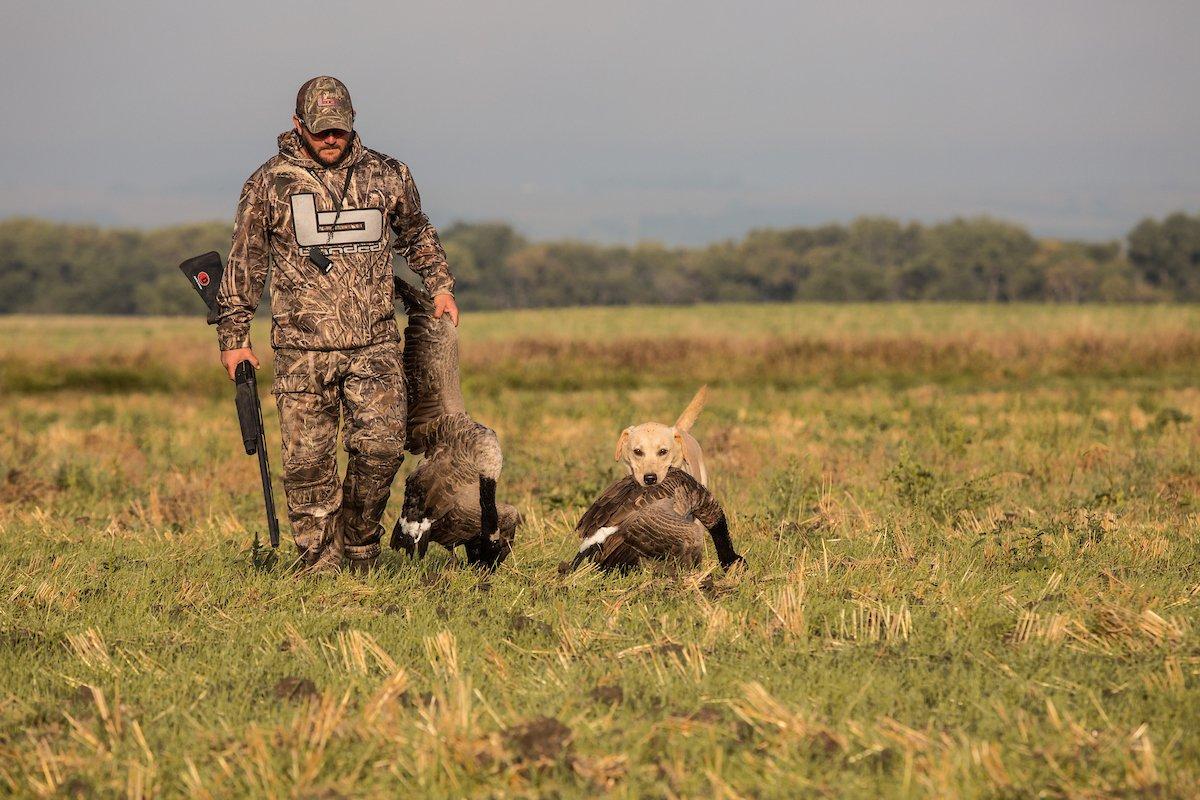
Setting decoys in the September heat, Grandpa would marvel at the incredible opportunity provided by special early seasons for locally breeding giant Canada geese. After all, in the 1950s ‚ when Grandpa was stacking up mallards and divers ‚ giant Canada geese had been declared extinct. Now they're everywhere.
I'm guessing our elders couldn't find anything to dislike about these hunts. Long seasons, abundant opportunity and a chance for hunters to help control an expanding and often nuisance wildlife population ‚ what's not to love?
Photo © Tom Rassuchine
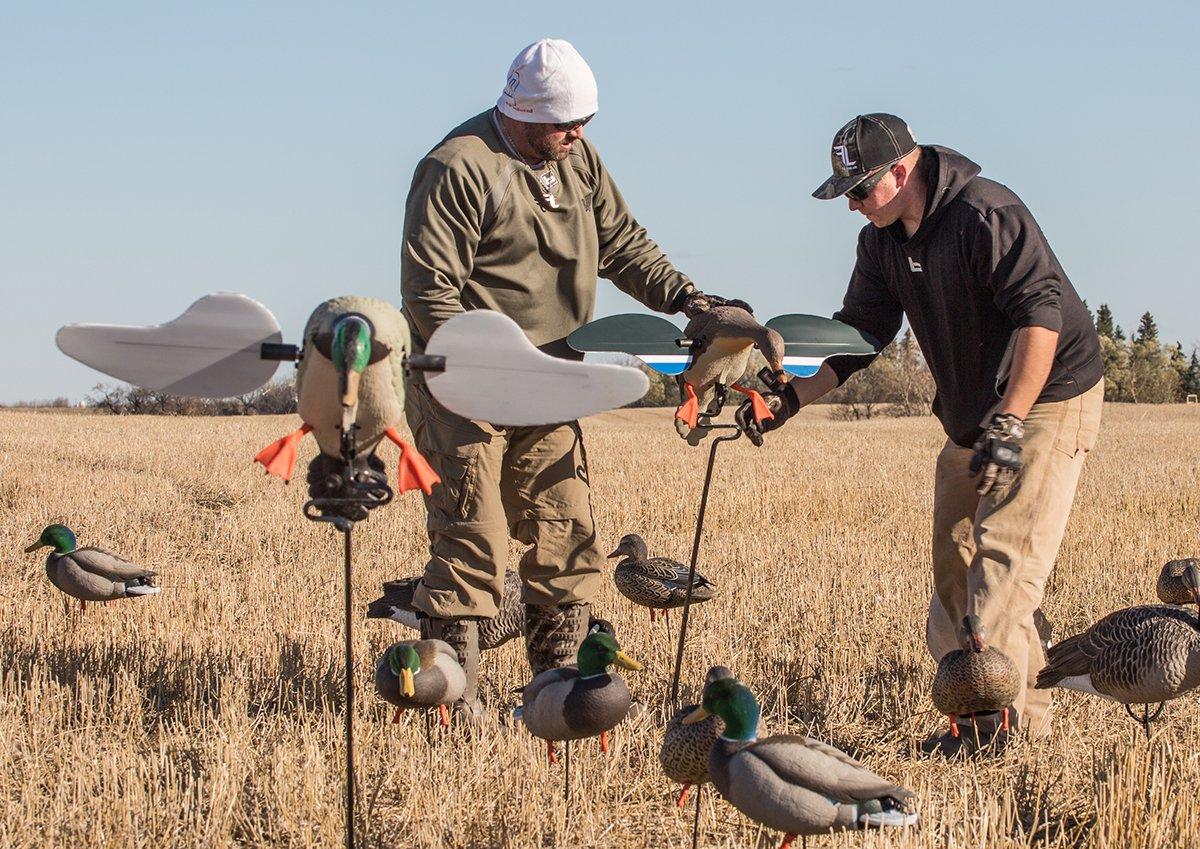
This isn't an indictment of spinning-wing decoys. We all have several, and they're almost required gear in many situations. Still, I think these gadgets would probably offend Grandpa's traditional sensibilities. Gramps, you might argue. They're just another tool. And they work great early in the season and in fields. Still, Grandpa would likely shake his head at those noisy, whirring contraptions, grab his wooden blocks and push-pole his skiff to another pothole.
Photo © Tom Rassuchine
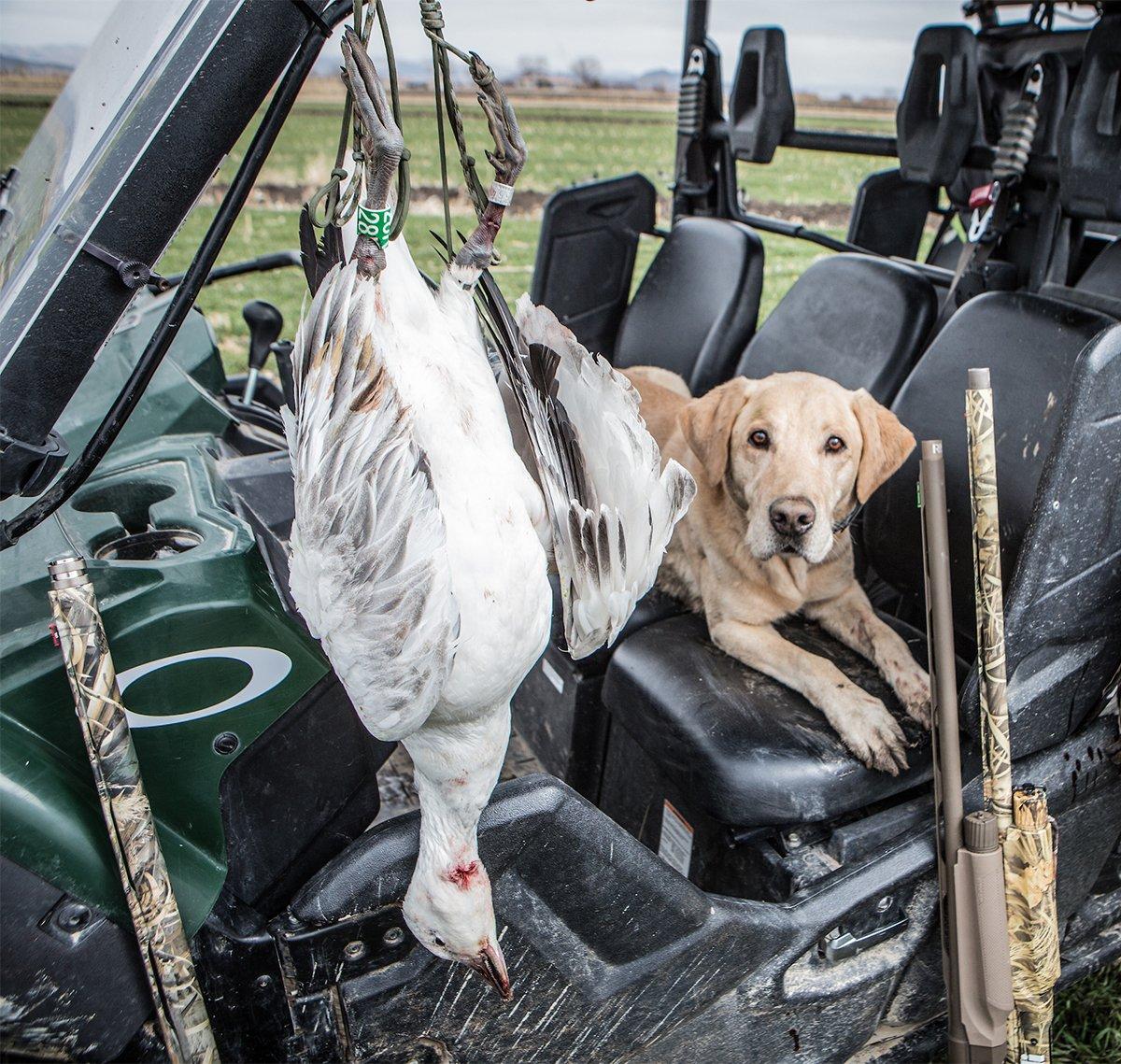
So you're telling me, Grandpa might say, that snow geese have proliferated to the point that we can hunt them in spring during their return migration, and there's no limit, and we can use electronic calls and unplugged guns?
Yep.
Grandpa would have only one more question: When are we going?
As with special seasons for giant Canadas, spring conservation-order light-goose hunting has opened up worlds of fowling opportunity while helping (hopefully) to avoid an ecological disaster on the birds' tundra breeding grounds. It's a modern marvel, and Granddad would wholeheartedly approve.
Photo © Tom Rassuchine
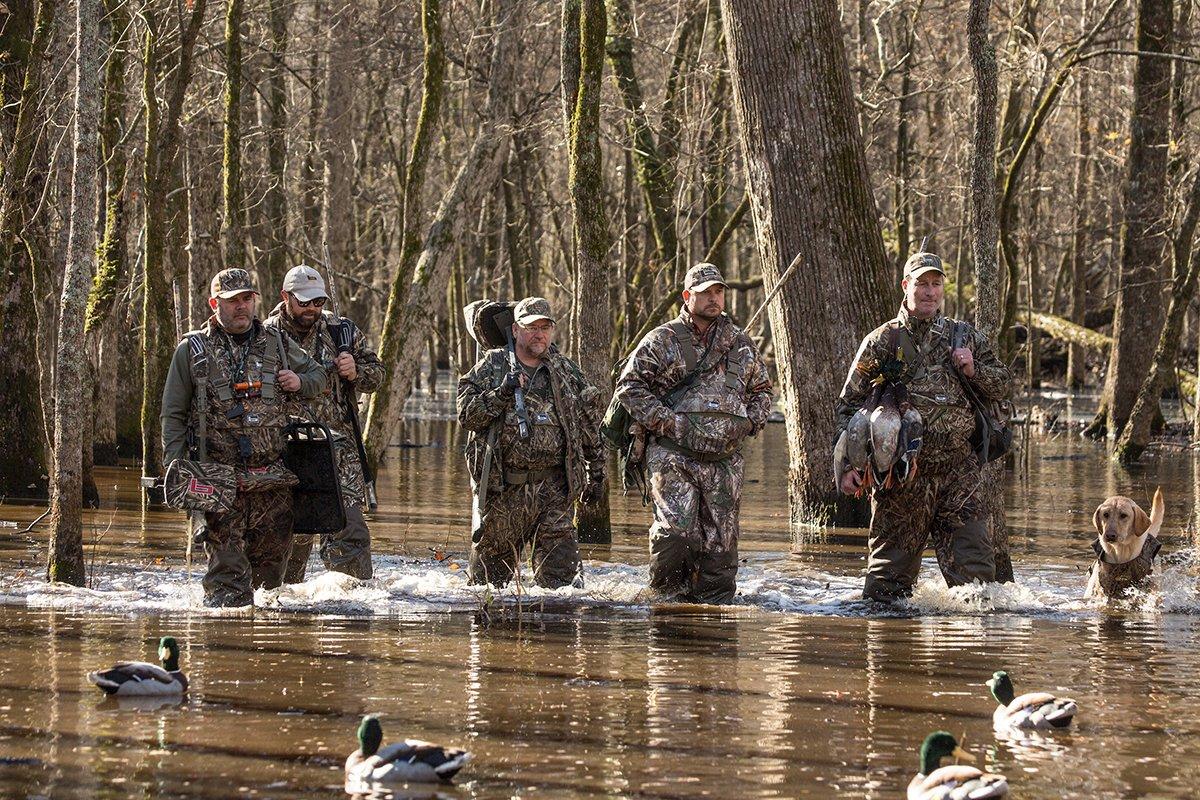
Waterfowlers ‚ all hunters, really ‚ are feeling a constricting pressure as the amount of land and water open to hunting slowly shrinks. And as part of that, enthusiastic hunters crowd into public spotsboosting pressure on those already heavily hunted areas.
Obviously, Grandpa wouldn't like that. Oh, he'd still go, but there's no way he'd sleep in a boat for two nights while holding his spot before the opener on the Mississippi River. And woe to the young hunter who might set up 75 yards downwind from Gramps. They'd be in for an old-fashioned, cuss-filled chewing out.
Yet even Grandpa might wonder how to stall or reverse the trend. The wheels of progress ‚ that is, man's need for food, commerce and habitation, and even greed ‚ will not stop. Grandpa might pat us on the shoulder and tell us to make the best of things.
Photo © Tom Rassuchine
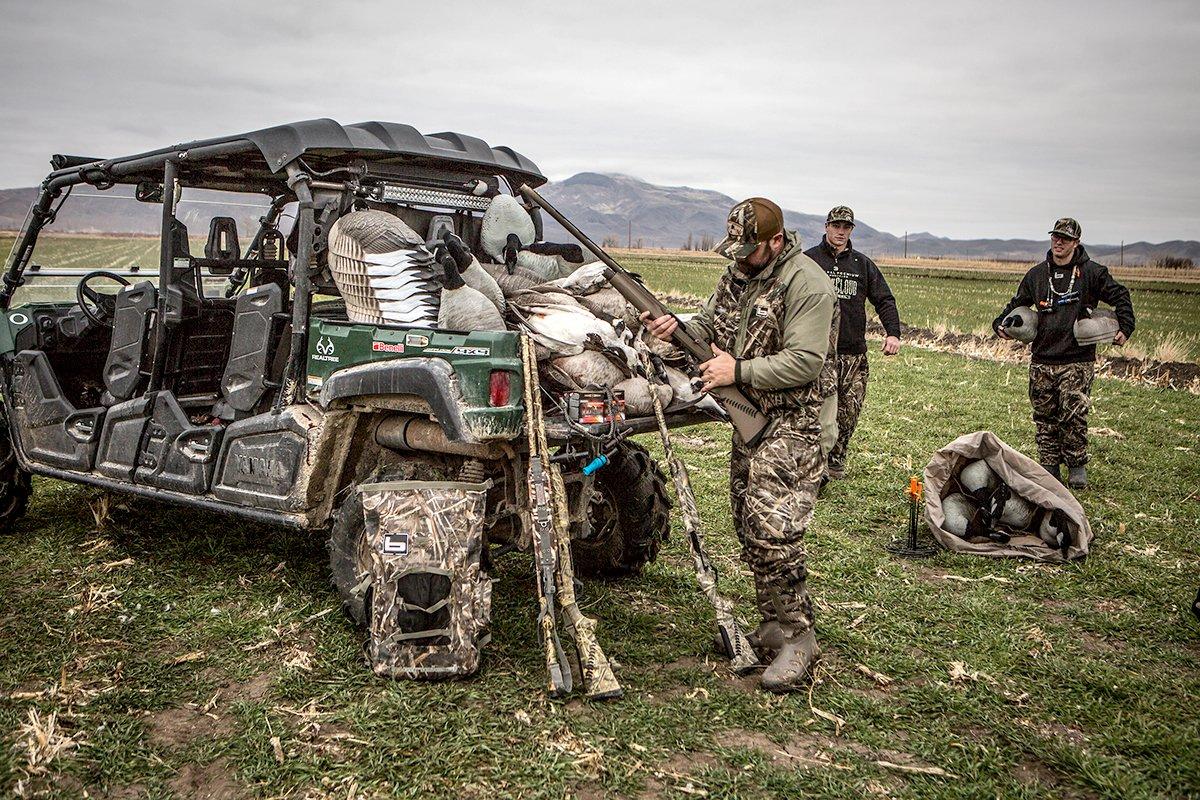
OK, sure, Grandpa might stubbornly stick to his old Mackinaw and denture-jarring A-5, and he'd espouse the effectiveness of his worn Olt and Mallardtone calls. But then he'd note how your Benelli SBEIII never jammed and didn't dent your shoulder. He'd probably love the realistic sound of your acrylic, polycarbonate or cocobolo calls. And when he saw how your light, quiet, Realtree Max-5-covered clothing kept you warm, dry and concealed, he'd be convinced. Not all progress is bad, he'd figure. Let me see that gun, son, he might say. You know someone at Realtree and Banded, right? I reckon I could use a jacket like that.
Photo © Tom Rassuchine
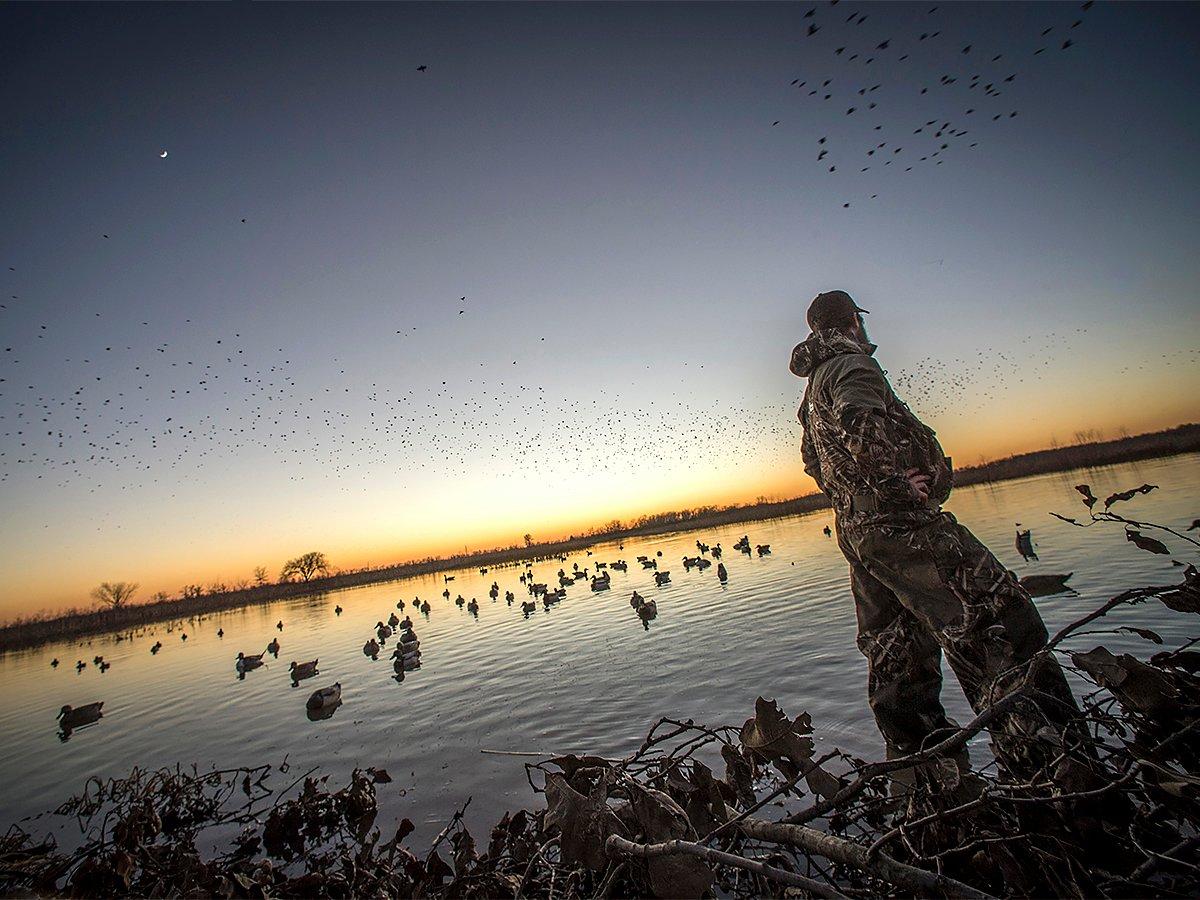
Yep, Gramps would look at the annual duck population numbers and marvel at how many of them are much higher than long-term averages. Then he'd chuckle as he remembered drought cycles on the prairie, years with the point system and general gloom about the future of waterfowl.
Still, he'd ponder some species of concern, such as pintails and black ducks, and feel uneasy. Will blacks be hybridized out of existence? Will there be enough quality habitat to support pinnies? The uncertainty would upset him. But then, Grandpa's perspective would kick in, and he'd figure that many passionate, intelligent folks were working to find answers. And he'd remember how Mother Nature usually seemed to heal her wounds, and how most of these seemingly frail creatures we love are far more resilient and adaptable than we realize. The solutions, he'd figure, are out there.
Then, feeling somewhat better, he'd hope to be around to see what the future of waterfowling held.
Photo © Bill Konway






